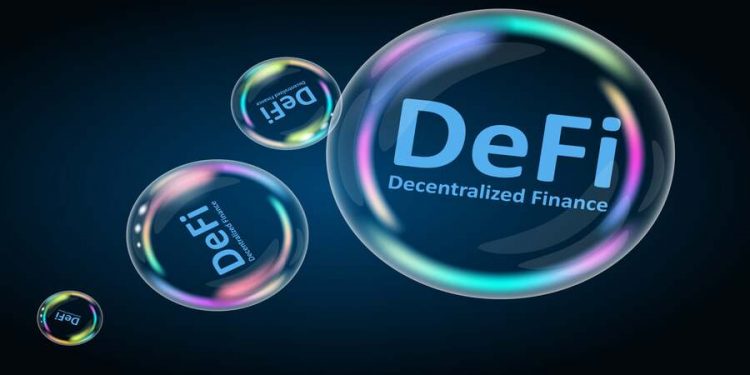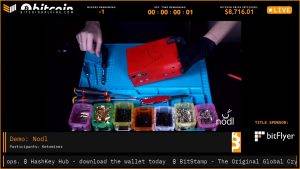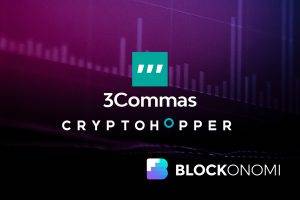Smart contracts are the backbone of decentralized finance (DeFi) protocols, but they can be susceptible to vulnerabilities. Smart contract audits play a crucial role in identifying and mitigating these risks, ensuring the integrity and security of the DeFi ecosystem. This article explores the importance of smart contract audits in DeFi and provides best practices for conducting them effectively.
Understanding DeFi Smart Contract Audits
Overview of Smart Contract Audits
Smart contract audits involve a comprehensive review of the code, design, and functionality of a smart contract. Auditors assess the contract for potential vulnerabilities, bugs, or weaknesses that could be exploited by malicious actors. The goal is to identify and mitigate any potential risks that could compromise the security and reliability of the contract.
Role of Audits in Identifying Vulnerabilities
Smart contract audits are critical in uncovering vulnerabilities before they are exploited. Auditors use various techniques, including manual code review and automated analysis tools, to identify potential weaknesses in the contract logic, security vulnerabilities, or coding errors. By conducting thorough audits, developers can address these vulnerabilities and enhance the overall security of their smart contracts.
Benefits of Conducting Audits in DeFi
Conducting audits in DeFi provides several benefits. Firstly, it helps build trust among users, investors, and the broader DeFi community. Audited contracts are seen as more reliable and trustworthy, attracting greater participation and adoption. Additionally, audits protect user funds and assets by reducing the risk of hacks, exploits, or other vulnerabilities. Audits also promote transparency and accountability, ensuring that DeFi protocols operate as intended and fulfill their promises to users.
Importance of Smart Contract Audits in DeFi

Mitigating the Risk of Vulnerabilities
The decentralized nature of DeFi makes security vulnerabilities a significant concern. Smart contract audits play a crucial role in identifying potential vulnerabilities and reducing the risk of security breaches or financial losses. By proactively addressing these vulnerabilities, audits contribute to a safer and more secure DeFi ecosystem.
Protecting User Funds and Assets
User funds and assets are at the core of DeFi. Smart contract audits help protect these assets by identifying and mitigating risks that could lead to theft or loss. Audits provide assurance to users that their funds are safeguarded and enhance confidence in participating in DeFi protocols.
Ensuring Protocol Integrity and Trust
Audits are instrumental in ensuring the integrity and trustworthiness of DeFi protocols. By conducting audits, protocols demonstrate their commitment to security, transparency, and responsible development practices. Audits help maintain the reputation of protocols, attracting users, investors, and strategic partnerships.
Best Practices for DeFi Smart Contract Audits
- Engaging Reputable Auditors
Choosing reputable auditors with expertise in smart contract security is essential. Reputable auditors have a proven track record and deep understanding of the unique challenges and risks in the DeFi space. Their expertise ensures a comprehensive and reliable assessment of smart contracts, providing valuable insights and recommendations for improvements.
- Thoroughly Reviewing the Audit Report
After the audit, it is crucial to thoroughly review the audit report. The report should outline identified vulnerabilities, their severity, and recommended fixes. By carefully analyzing the report, developers can gain a clear understanding of the potential risks and take appropriate actions to address them.
- Implementing Recommended Changes and Fixes
Acting upon the recommendations provided in the audit report is vital for strengthening smart contract security. Developers should implement the recommended changes, fixes, and security enhancements identified during the audit. This process ensures that the contract is more robust and resilient against potential vulnerabilities.
- Conducting Regular Follow-up Audits
Smart contract audits should not be seen as a one-time event. To maintain the security and integrity of the smart contract over time, regular follow-up audits are essential. Periodic audits help identify any new vulnerabilities or issues that may arise due to updates or changes in the DeFi protocol or underlying infrastructure.
Collaboration between Auditors and DeFi Projects
Building Strong Partnerships
Auditors and DeFi projects should foster strong partnerships based on trust and collaboration. Clear communication channels and a shared understanding of goals and expectations are crucial. Building long-term relationships between auditors and projects helps ensure ongoing security and enables the development of more robust smart contracts.
Communication and Transparency
Open and transparent communication between auditors and DeFi projects is essential throughout the auditing process. Regular updates, discussions, and clarifications help maintain alignment and address any questions or concerns that may arise. Transparency builds trust and ensures a smooth and productive audit engagement.
Timely Implementation of Audit Recommendations
DeFi projects should prioritize the timely implementation of audit recommendations. Delaying or ignoring recommended changes increases the risk of vulnerabilities and compromises the effectiveness of the audit process. By promptly addressing audit recommendations, projects can enhance the security and reliability of their smart contracts.
The Future of DeFi Smart Contract Audits
Enhanced Automation and Tooling
As the DeFi ecosystem continues to evolve, automation and tooling will play a significant role in smart contract audits. The development of advanced analysis tools, formal verification techniques, and automated vulnerability scanners will streamline the auditing process and improve the efficiency and accuracy of identifying potential vulnerabilities.
Deeper Integration with DeFi Protocols
Smart contract audits will become an integral part of the development lifecycle of DeFi protocols. Auditing will be embedded in the design and implementation stages, ensuring security measures are incorporated from the outset. Deeper integration between auditors and projects will facilitate ongoing security assessments and enhance the overall resilience of DeFi protocols.
Continuous Improvement of Audit Standards
The field of smart contract auditing will continue to mature, leading to the establishment of standardized best practices and audit frameworks. The industry will strive to improve audit methodologies, guidelines, and certification processes. Continuous improvement of audit standards ensures consistent and reliable assessments, driving the adoption of secure smart contract practices across the DeFi ecosystem.
Challenges in Smart Contract Audits
- Complexity of DeFi Protocols
DeFi protocols can be highly complex, incorporating multiple interconnected smart contracts and intricate logic. Auditing such protocols requires specialized knowledge and expertise to navigate the complexity and uncover potential vulnerabilities effectively.
- Rapid Evolution of DeFi
The fast-paced nature of the DeFi space presents challenges for smart contract audits. With constant updates, new features, and evolving standards, auditors must stay up to date with the latest developments and adapt their auditing methodologies accordingly.
- Lack of Formal Verification Tools
The lack of widely available and user-friendly formal verification tools poses a challenge for auditors. Formal verification requires specialized skills and tools, which may limit the number of auditors who can effectively perform this type of audit. Further development and accessibility of formal verification tools will contribute to stronger smart contract security.
- Dynamic Nature of DeFi Protocols
DeFi protocols are dynamic and can undergo frequent updates and changes. Auditing these protocols requires adaptability and the ability to assess the security implications of new features or modifications. Auditors must stay vigilant and conduct periodic audits to ensure ongoing security in the face of evolving DeFi landscapes.
Innovations in Smart Contract Auditing
Formal Verification
Formal verification techniques, such as mathematical proofs, are gaining traction in smart contract audits. These methods provide rigorous mathematical verification of the correctness and security properties of a smart contract, offering stronger guarantees of its reliability.
Bug Bounties and Code Auditing Contests
Bug bounty programs and code auditing contests incentivize the broader community to participate in identifying vulnerabilities. These initiatives encourage crowd-sourced security audits, allowing a diverse range of participants to contribute their expertise and insights to improve smart contract security.
Automated Security Tools
The emergence of automated security tools specifically designed for smart contract audits is revolutionizing the auditing process. These tools use static analysis techniques, code pattern recognition, and machine learning algorithms to detect common vulnerabilities and provide auditors with valuable insights and recommendations.
Incorporating Formal Verification into Development Processes
An innovative approach is to incorporate formal verification as an integral part of the smart contract development process. By using formal verification during the design and implementation stages, developers can proactively identify and address vulnerabilities early on, reducing the need for extensive post-development audits.
Collaborative Auditing Efforts
Industry Collaboration and Knowledge Sharing
Collaboration among auditors, DeFi projects, and the broader community is crucial for advancing smart contract auditing practices. Sharing knowledge, best practices, and lessons learned fosters a collective effort to improve security standards and enhance the overall resilience of the DeFi ecosystem.
Standardization and Certification
The establishment of industry standards and certifications specific to smart contract audits can provide consistency and a benchmark for auditors and projects. Standardization efforts can help streamline the auditing process, improve transparency, and build trust among users and investors.
Bug Bounties and Responsible Disclosure Programs
Bug bounty programs and responsible disclosure programs incentivize security researchers to identify and report vulnerabilities in DeFi protocols. These programs provide a channel for external experts to contribute to the auditing process, helping identify and remediate potential security risks before they are exploited.
Conclusion
Smart contract audits are crucial for the security and integrity of DeFi protocols. By identifying vulnerabilities, protecting user funds, and ensuring protocol trustworthiness, audits contribute to a more secure and reliable DeFi ecosystem. Following best practices, such as engaging reputable auditors and implementing recommended changes, strengthens smart contract security. The future holds increased automation, deeper integration with DeFi protocols, and continuous improvement of audit standards, reinforcing the importance of smart contract audits in the ever-evolving DeFi landscape.









